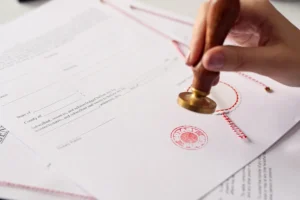Squatters are those enigmatic individuals who relocate into deserted or abandoned properties; they have long been a source of intrigue and mystery. Many people are curious about—and afraid of—how squatters occasionally acquire legal ownership of the land they have occupied.
There are several types of squatter’s rights in the US, including in Massachusetts. It is crucial to comprehend the particular laws that apply to you because the conditions for asserting these rights differ from state to state. Massachusetts implements regulations about adverse possession that are different from those in other states.
Even though it is renownedly difficult for a squatter to meet all the standards needed to successfully file a legal claim for your property, it never hurts to be ready.
I will discuss squatters’ rights in Massachusetts and describe the process for filing adverse possession claims in this state in this article.
Who Are Squatters?
Squatters typically move into unoccupied or abandoned places and occupy properties without authorization or legal ownership. They may squat indefinitely or for a long time. Not all squatters are bad people; some might have been lawfully the owners of a family property before realizing it was part of someone else’s ownership.
Who Isn’t a Squatter?
Not all unauthorized occupants, such as those with past-due leases and trespassers, are squatters. Squatters live on vacant land, whereas holdover renters and criminal trespassers visit private property but do not reside there.
What Are Squatter’s Rights and Adverse Possession?
Adverse possession, often known as squatter’s rights, permits squatters to purchase property without the owner’s consent, encouraging beneficial land use and discouraging neglect. State precedents and standards for adverse possession claims exist, even though no federal statute oversees these rights.
Rights of Squatters in Massachusetts
To successfully pursue an adverse possession claim in Massachusetts, a squatter must continue to possess the property for twenty years. To prove their dedication to the upkeep of the property, squatters may be required by some states to pay property taxes or get “color of title.” While proof may strengthen a squatter’s case, Massachusetts law does not mandate either need. Also, squatters need to fulfill the following five prerequisites:
- Adverse/Hostile: The squatter must not have a current lease or rental contract with the property owner.
- Real Possession: The squatter needs to demonstrate proof of actual possession, which entails having lived on the land for a predetermined period.
- Prominent and visible—The squatter’s ownership of the land is readily apparent to nearby residents and other observers. They aren’t attempting to live there “in secret” or conceal their presence from other surrounding property owners.
- Exclusive: The squatter is the only one with ownership of the property. They keep people from residing there in the same way that a landowner would.
- Continuous: The squatter must own the land continuously and unhindered for a minimum of 20 years in Massachusetts.
In Massachusetts, How Does a Squatter File a Claim for Adverse Possession?
A squatter may submit a claim for adverse occupation in Massachusetts or initiate an action to “quiet title” if they have complied with both the general squatter’s rights principles and the standards for squatters’ rights in Massachusetts.
The legal procedure to assert the right of possession and acquire legitimate ownership of a specific piece of property is known as quiet title. Just because a squatter files a claim, it does not guarantee that they will be successful. Adverse possession cases are difficult to win; among the many challenges the squatter faces are:
- Obtain a wealth of documentation to support their claim, such as property tax receipts, correspondence addressed to the property in their name, proof that they have “beautified” the property, etc.
- submit to the court a quiet title complaint;
- Go to the property owner’s courtroom hearing, where they will make their opposing possession argument;
- effectively persuade a judge that they have complied with all state standards for adverse possession;
- To perfect the title, obtain a judgment for adverse possession.
- A squatter bears a heavy burden of proof while attempting to establish possession of your property.
- It’s an extremely complicated process that frequently necessitates the squatter having resided on your property for a long time and hiring legal counsel. Your involvement in a squatter scenario is unlikely to result in a successful action, leading to a silent title.
Ways to Keep Squatters Out of Your Unoccupied Massachusetts Property
Here are some useful pointers to keep squatters out of your vacant property:
- Examine your property regularly.
- During times of vacancy, make your property appear inhabited.
- Install sufficient illumination and security equipment to prevent unwanted access.
- Use strong locks and barriers to secure all windows, doors, and access points.
- Place signs warning people not to enter the property.
- Urge your neighbors to report any shady dealings.
- To supervise and maintain the property, think about working with a property management business.
- Maintaining usage of the property, even if it’s just temporarily, can help deter squatting.
To boost patrols and respond to trespassing, cultivate a positive connection with local enforcement, and inform them of the property’s vacant status.
In summary:
When it comes to knowing the laws governing the ownership and possession of property, knowledge is power. It’s important to remember, though, that adverse possession laws often don’t apply. It is uncommon for property neglect to the point that a squatter may remain undetected for the necessary amount of time, highlighting the significance of alertness and preemptive actions in defending property rights.



